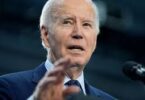Hussain Abdul Hussain
President Donald Trump’s son-in-law and Middle East Peace Envoy Jared Kushner visited Riyadh and met Crown Prince Muhammad bin Salman, Politico has reported. The American delegation in this low-profile visit included Jason Greenblatt, a longtime Trump Organization operative and the architect of the new outside-in peace scheme, and Egyptian-American Dina Powell of the National Security Council.
Kushner’s trip to the Gulf came at a time Trump faces unprecedented political pressure at home. Three of Trump’s aides from his electoral campaign and inaugural party were indicted, last week, on charges of illicitly lobbying Washington on behalf of foreign governments. One of them, George Papadopoulos, pleaded guilty, while the other two — former Trump campaign chairman Paul Manafort and second-in-command Rick Gates — pleaded innocent, thus promising a fight in a court of law.
Trump’s legal battles came on the heels of his Congressional failures. Trump has not been able to stir Congress, which is controlled by his Republican Party, toward “repealing and replacing” Obamacare, procuring funds for building a wall on America’s southern border with Mexico, or passing tax cuts. Despite his troubles at home, Trump still deployed Kushner overseas. By doing so, Trump had three goals in mind. The first was to get the Gulf-Israel outside-in peace rolling.
The second was to win points with Israel, in the hopes that America’s Jewish vote and money will prevent any Trump impeachment and even help him in his bid for reelection in 2020. The third goal is connected to the personal interests of the Trump and the Kushner families, both of which run real estate empires and are continuously on the lookout for potential donors, with deep Gulf pockets seeming like a worthy target.
The Gulf-Israel outside-in peace means getting countries of the Gulf Cooperation Council (GCC) to sign peace treaties with Israel, regardless of the Palestinians. Traditionally, Arab countries have held out on peace with Israel in the belief that such a tactic empowers the Palestinian position in their negotiations with Israel. Throwing away the Arab solidarity card will certainly weaken Palestinians. Greenblatt argues that once Gulf-Israel peace happens, however, it will generate enough goodwill to carry Palestinian-Israeli peace talks to the finish line.
Kushner and Greenblatt have made Gulf-Israel peace the centerpiece of Trump’s foreign policy, so much so that the US president’s first trip saw him uncharacteristically land in Riyadh, from where he flew to Israel, a move which Israeli Prime Minister Benjamin Netanyahu capitalized on by saying that the second time a direct flight happens between Riyadh and Tel Aviv, he hoped it would carry an Israeli premier. Yet despite the Trump administration’s focus on Gulf-Israeli peace, there are no signs that any of the parties can seal the deal. A few years ago, visiting Saudi Arabia would have been enough to signal that the whole GCC would follow in the footsteps of Riyadh. But since the outbreak of the Gulf crisis in July, Doha has parted ways with Riyadh and Abu Dhabi, meaning that even if Riyadh gives its word for peace with Israel, Qatar will not follow.
Other signs from the Gulf further suggest that a Saudi-Emirati move toward peace with Israel might not bring the rest of the Gulf on board. Last month in Saint Petersburg, Kuwaiti Speaker Marzouq al-Ghanem had a showdown with an Israeli parliamentary delegation at the world’s forum for parliamentarians. Ghanem’s incident, and the support it garnered in the Kuwaiti media, suggest that Kuwait is still far from peace with Israel, without consensus inside the Arab League, or at least inside the GCC.
And like Qatar and Kuwait, Oman does not seem in a hurry to ratify peace with Israel before Palestinians do. Only Bahrain seems to be in sync with Saudi Arabia and the Emirates in inching closer toward peace with Israel.
Divisions inside the GCC, over Gulf peace with Israel, suggest that the Gulf is still not ready for whatever Kushner and Greenblatt are planning. Perhaps it is this division that has convinced Riyadh and Abu Dhabi to float ideas about the creation of a new regional council that brings them together with their close allies — Egypt, Bahrain, and hopefully Jordan and Morocco. But Jordan has walked a tightrope throughout the Gulf crisis. It recalled its ambassador from Doha, but never shut down its embassy. As for Morocco, it is too distant to project influence in the Levant-Gulf neighborhood. While Kushner and his team visited Riyadh, Israeli athletes won five medals at a judo tournament in Abu Dhabi. When these athletes stood on the podium to receive their medals, Emirati authorities did not play the Israeli anthem or fly the Israeli flag, as is customary at such events.
The Israelis had mixed feelings about the Abu Dhabi debacle. On one hand, they were happy that their participation in a Gulf tournament reasserted ties, so far secret, between the two countries, and brought normalization closer to reality. On the other hand, Israelis were rightfully insulted over the humiliating treatment of their athletes, and said that they received reassurances from Abu Dhabi that such a mishap would not happen again in the future.
The Abu Dhabi incident might have been the best reflection of the embattled Gulf-Israeli peace. It is a peace that resembles infidelity in a relationship, with the single participant eager to announce the relationship, while the married one is scared such announcement might rock his or her world. If the Abu Dhabi incident is a harbinger of the Gulf-Israeli peace to come, then we have to expect a deformed kind of peace, one that is celebrated silently, without flags or anthems.






